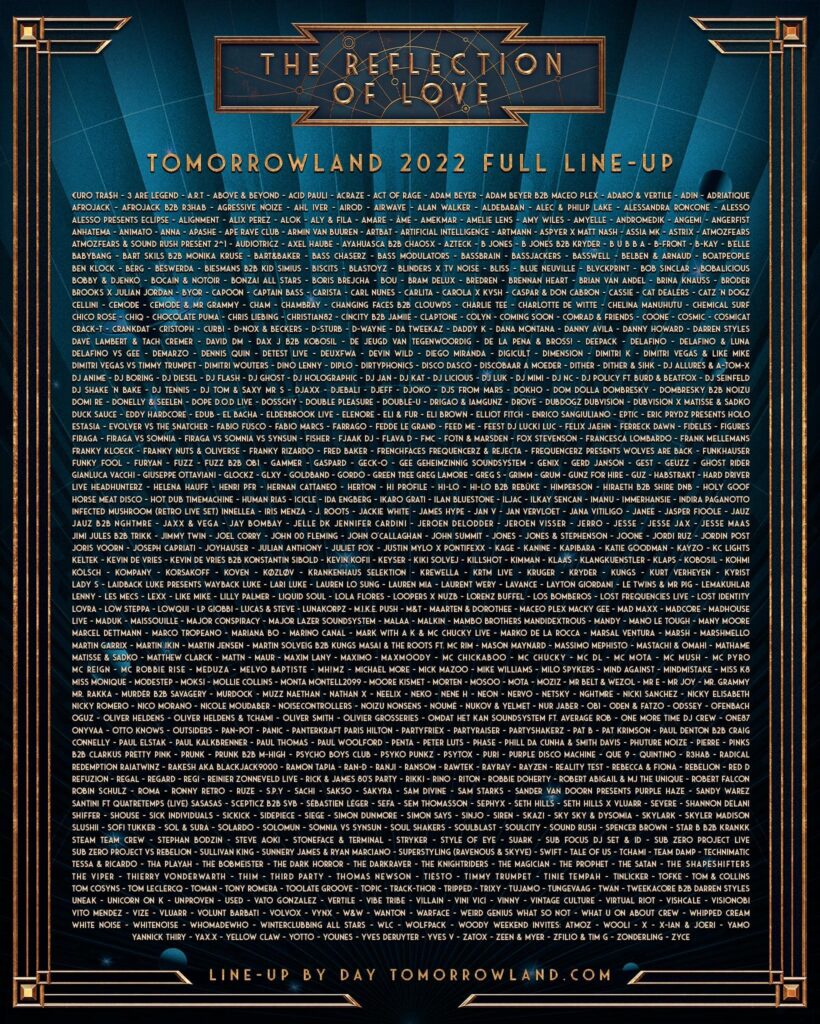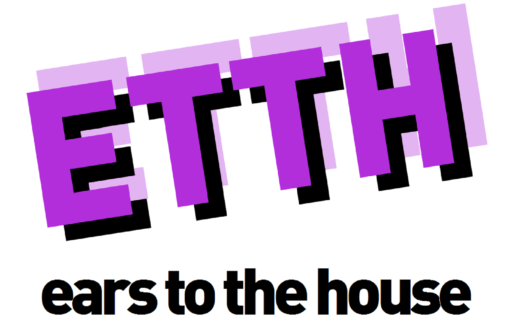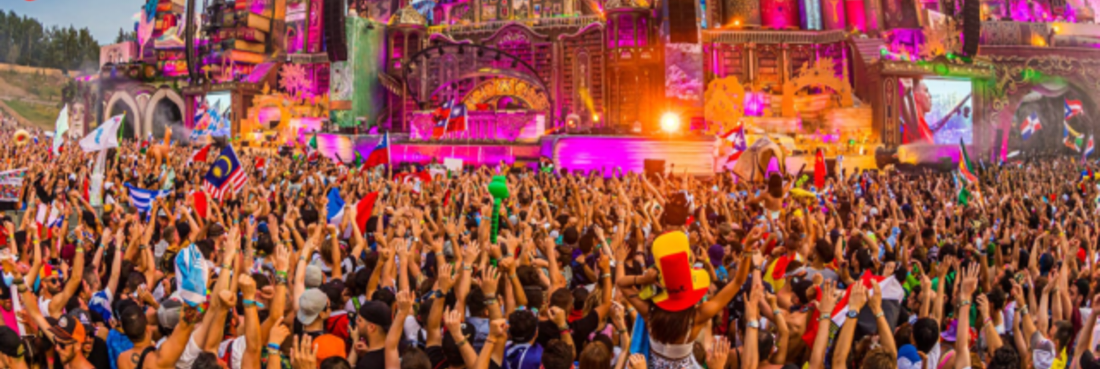A few weeks ago, Ears To The House published an article pointing out how the Tomorrowland lineup for this year “worships at the altar of business techno”. It’s a criticism we stand by – just like much of the festival world, they’ve chosen the same business techno types to fill their lineups. Nice work if you can get it, hard cheese to everyone else.
We also published the utterly ridiculous official poster for the event, for which most people would need a magnifying glass to read. Here it is…

We know for a fact that some of the DJs on this lineup have booking fees which almost go up to six figures – and almost all of them are on five figures. The Groove Cartel previously reported over 700 artists are on the lineup – and if the average DJ fee across the board was $20,000, that would lead to an eye-watering bill of $14million. And that’s before anything else at all has been spent.
Exactly how much it costs to run a festival the size of Tomorrowland is unclear – a source of Ears To The House in the festival world expects it would cost “at least $25-30million to stage”. So given the vast bills involved in just the DJ fees alone, how does Tomorrowland make a profit?
Let’s be absolutely clear – we mean no malice by posing this question. Yes, there’s clearly a business techno side to the festival which we have little time for. But we do believe big festivals are needed just as much as the smaller ones for the health of the scene.
However, let’s look at the facts – because the pandemic will have cost Tomorrowland dearly. When the 2020 event was cancelled in the spring of that year, many non-recoupable expenses involved with running a festival will already have been paid. And whilst some will no doubt have chosen to be flexible given the highly unusual circumstances, not every company was obliged to be.
The cancellation of the 2021 event will also have brought its own costs – Ears To The House is not suggesting financial problems for one moment here, but we can say Tomorrowland will have been hit by the pandemic in much the same way as other festivals. So how does Tomorrowland make its money?
Ticket sales are one strand, obviously – deals with local hotels will also earn a little extra money. Elsewhere, things like sponsorship deals will be in place to help fund certain aspects of the festival – but newer income streams such as virtual might also be a potential earner too.
Michiel Beers, one of the festival’s founders, said in 2020 that a virtual event “just about broke even” after setup costs and sponsorships. Those setup costs will now likely be lower owing to experience, and people attending festivals online is something in the future – why else do people think DICE bought Boiler Room?
This decision by Tomorrowland to embrace the future now could save them a lot of trouble later. In which case any pandemic induced financial pain could soon be a distant memory…





